Question: c++ visual studio 2019 Do not use #include (I need a different method than the one below to implement a circular queue using my circular
c++ visual studio 2019
Do not use #include
(I need a different method than the one below to implement a circular queue using my circular list) (was told by my professor that other students had the same method) also use the circular list method that I have made in order to implement the circular queue which is provided below the pictures of the method that other people have also submitted)
- Using composition
- Overriding selected public methods with private methods
- Using private inheritance.
The circular queue should expose only the following methods:
| back | Returns the value of the last (most recently added) element at the back of the queue. |
| empty | Tests if the queue is empty. |
| front | Returns the value of the element at the front of the queue. |
| pop | Removes an element from the front of the queue |
| push | Adds an element to the back of the queue. |
| size | Returns the number of elements in the queue. |
| | Prints all values in the queue, from the front to the back. |
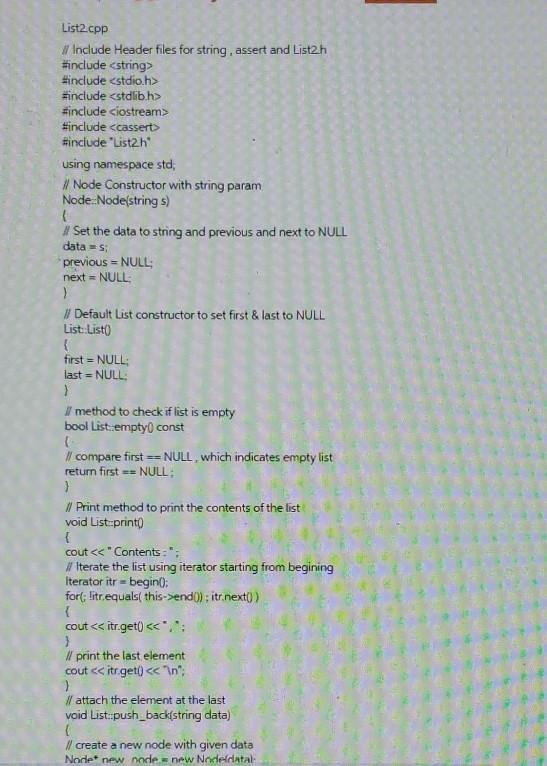
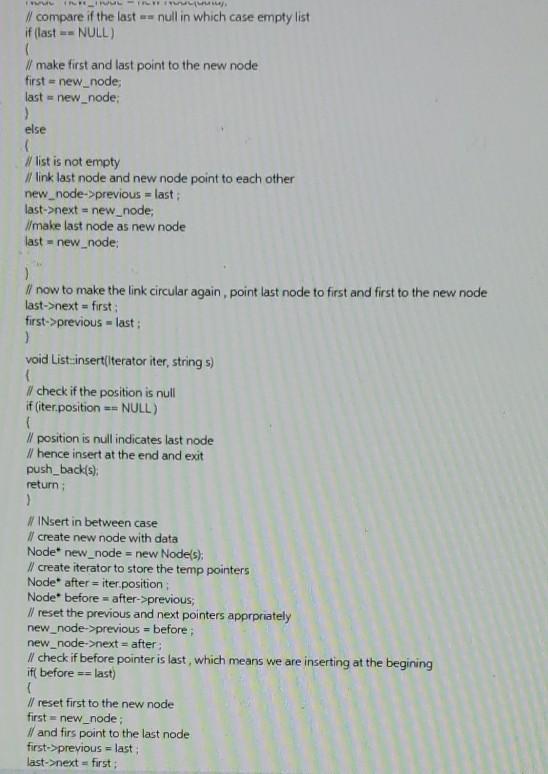
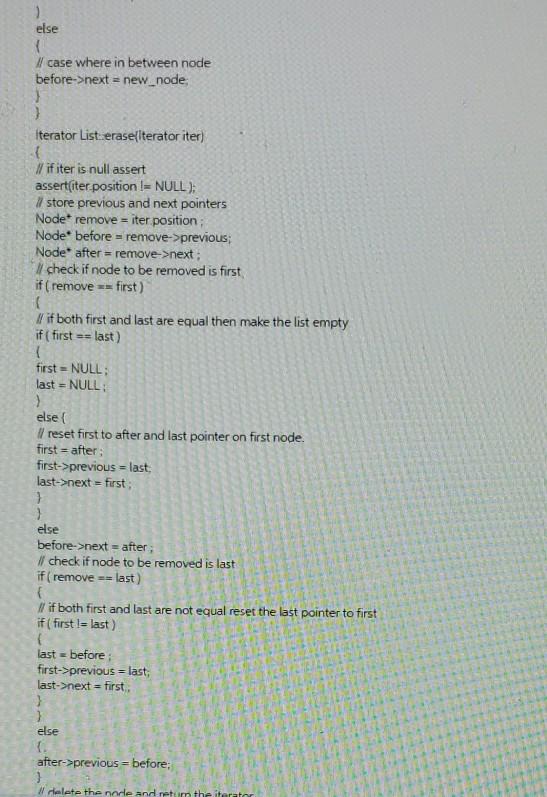
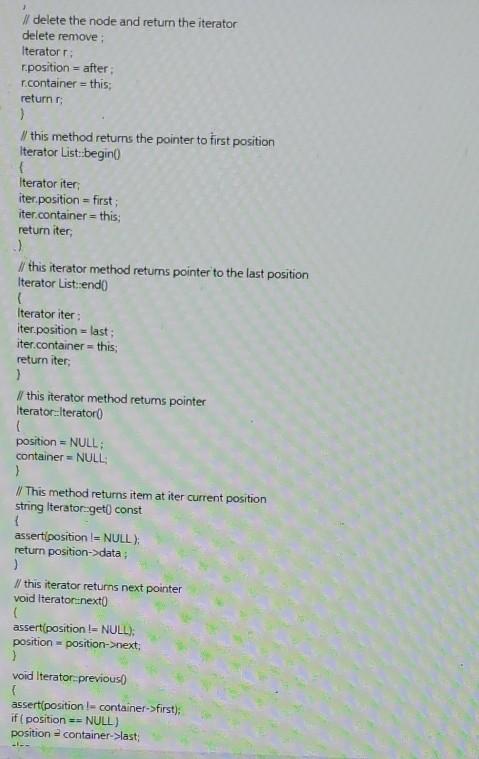
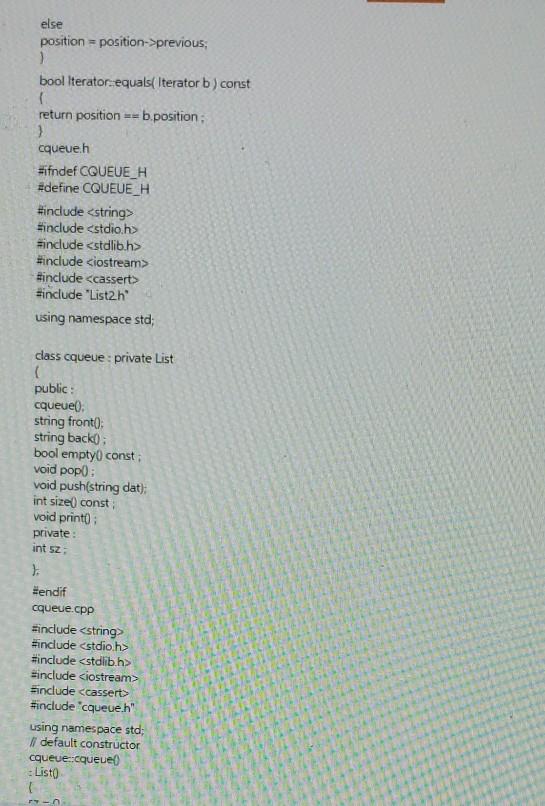
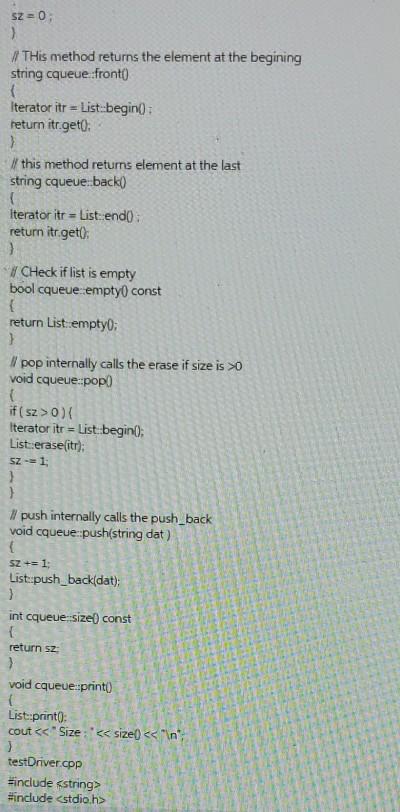
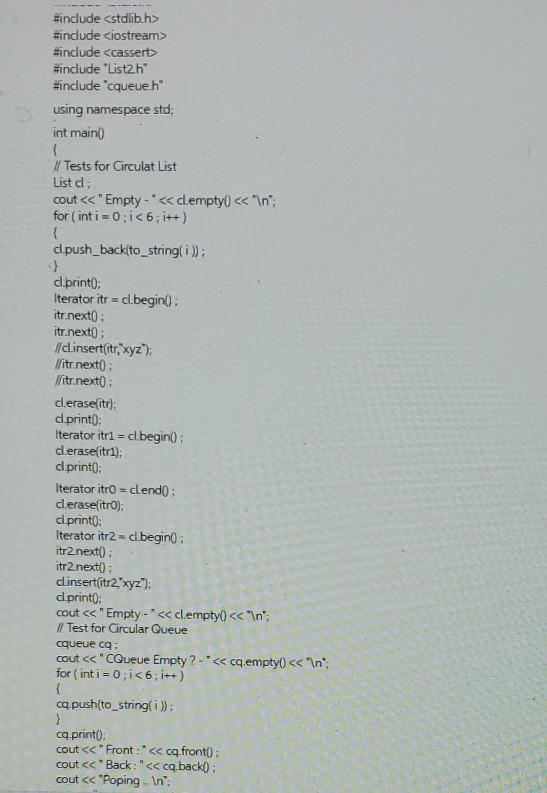
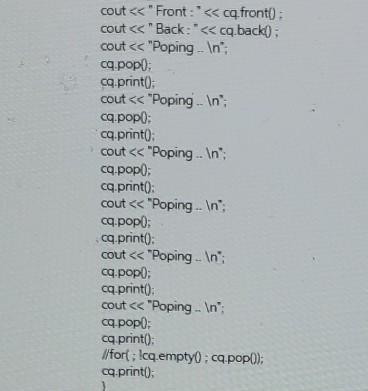
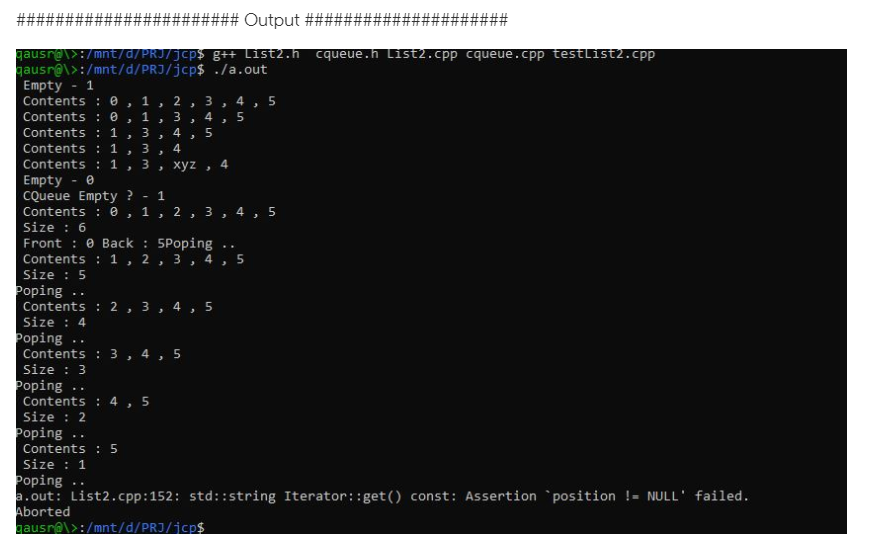
(my) list.h-------------------------------------------------------------------
#include #include #include
using namespace std;
class List; class Iterator;
class Node { public: /** * Constructs a node with a given data value. * @param s the data to store in this node */ Node(string s);
private: string data; Node* previous; Node* next; friend class List; friend class Iterator; };
class List { public: /** * Constructs an empty list; */ List();
/** * Appends an element to the list. * @param data the value to append */ void push_back(string data);
/** * Inserts an element into the list. * @param iter the position before which to insert * @param s the value to append */ void insert(Iterator iter, string s);
/** * Removes an element from the list. * @param iter the position to remove * @return an iterator pointing to the element after the * erased element */ Iterator erase(Iterator iter);
/** * Gets the beginning position of the list. * @return an iterator pointing to the beginning of the list */ Iterator begin();
/** * Gets the past-the-end position of the list. * @return an iterator pointing past the end of the list */ Iterator end();
/** * Checks if the passed circular list is empty. * @return true if the circular list is empty and false otherwise */ bool empty();
/** * Prints the values in the nodes of the list * from the first to the last. */ void print();
private: Node* first; Node* last; friend class Iterator; };
class Iterator { public: /** * Constructs an iterator that does not point into any list. */ Iterator();
/** * Looks up the value at a position. * @return the value of the node to which the iterator points */ string get() const;
/** * Advances the iterator to the next node. */ void next();
/** * Moves the iterator to the previous node. */ void previous();
/** * Compares two iterators * @param b the iterator to compare with this iterator * @return true if this iterator and b are equal */ bool equals(Iterator b) const;
private: Node* position; List* container; friend class List; };
(my) list.cpp---------------------------------------------------------------------------------
#include #include #include #include "list2.h"
using namespace std;
Node::Node(string s) { data = s; previous = NULL; next = NULL; }
List::List() { first = NULL; last = NULL; }
void List::push_back(string data) { Node* new_node = new Node(data); if (last == NULL) { first = new_node; last = new_node; } else { new_node->previous = last; last->next = new_node; last = new_node; } last->next = first; first->previous = last; }
void List::insert(Iterator iter, string s) { if (iter.position == NULL) { push_back(s); return; } Node* new_node = new Node(s); Node* after = iter.position; Node* before = after->previous;
new_node->previous = before; new_node->next = after; if (before == last) { first = new_node; first->previous = last; last->next = first;
// the previous node of last // should be updated from // pointing to itself to // pointing to the new node last->previous = first; } else { before->next = new_node;
// the previous node of after // should be updated from // pointing to before to // pointing to the new node after->previous = new_node; } }
bool List::empty() { return first == NULL; }
void List::print() { Iterator it = begin();
if (empty()) { cout
do { cout
} while (!it.equals(end())); }
Iterator List::erase(Iterator iter) { assert(iter.position != NULL); Node* remove = iter.position; Node* before = remove->previous; Node* after = remove->next;
if (remove == first) { if (first == last) { first = NULL; last = NULL; } else { first = after; first->previous = last; last->next = first; } } else if (remove == last) { // No separate check is necessary // as this has been covered already /** * if (first != last) * { * * **/ last = before; first->previous = last; last->next = first; // } } else { after->previous = before;
// the next node of before // should be updated from // pointing to the remove to // pointing to after before->next = after; }
delete remove;
Iterator r; r.position = after; r.container = this; return r; }
Iterator List::begin() { Iterator iter; iter.position = first; iter.container = this; return iter; }
Iterator List::end() { Iterator iter;
iter.position = last->next; iter.container = this; return iter; }
Iterator::Iterator() { position = NULL; container = NULL; }
string Iterator::get() const { assert(position != NULL); return position->data; }
void Iterator::next() { assert(position != NULL); position = position->next; }
void Iterator::previous() { assert(position != NULL); position = position->previous; }
bool Iterator::equals(Iterator b) const { return position == b.position; }
int main() { List staff;
staff.push_back("Tom"); staff.push_back("Dick"); staff.push_back("Harry"); staff.push_back("Juliet");
cout
Iterator pos; pos = staff.begin();
cout
cout
// test all other methods cout
cout
cout
while (!staff.empty()) { pos = staff.erase(pos); cout
cout
cout
return 0; }
List2.cpp Indude Header files for string, assert and List2h #include
Step by Step Solution
There are 3 Steps involved in it

Get step-by-step solutions from verified subject matter experts


